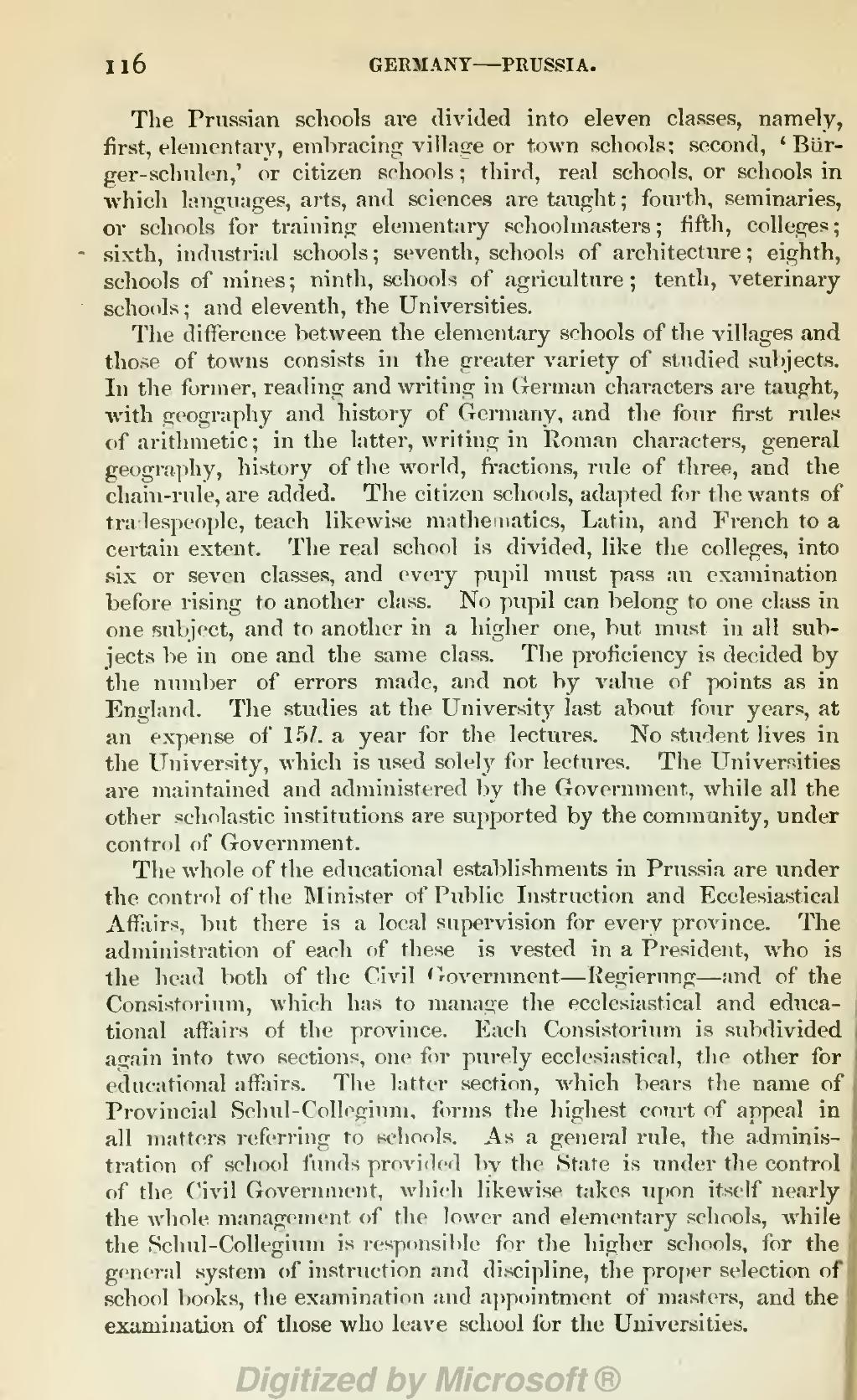The Prussian schools are divided into eleven classes, namely, first, elementary, embracing village or town schools; second, 'Bürger-schulen,' or citizen schools; third, real schools, or schools in which languages, arts, and sciences are taught; fourth, seminaries, or schools for training elementary schoolmasters; fifth, colleges; sixth, industrial schools; seventh, schools of architecture; eighth, schools of mines; ninth, schools of agriculture; tenth, veterinary schools; and eleventh, the Universities.
The difference between the elementary schools of the villages and those of towns consists in the greater variety of studied subjects. In the former, reading and writing in German characters are taught, with geography and history of Germany, and the four first rules of arithmetic; in the latter, writing in Roman characters, general geography, history of the world, fractions, rule of three, and the chain-rule, are added. The citizen schools, adapted for the wants of tradespeople, teach likewise mathematics, Latin, and French to a certain extent. The real school is divided, like the colleges, into six or seven classes, and every pupil must pass an examination before rising to another class. No pupil can belong to one class in one subject, and to another in a higher one, but must in all subjects be in one and the same class. The proficiency is decided by the number of errors made, and not by value of points as in England. The studies at the University last about four years, at an expense of 15 ₤ a year for the lectures. No student lives in the University, which is used solely for lectures. The Universities are maintained and administered by the Government, while all the other scholastic institutions are supported by the community, under control of Government.
The whole of the educational establishments in Prussia are under the control of the Minister of Public Instruction and Ecclesiastical Affairs, but there is a local supervision for every province. The administration of each of these is vested in a President, who is the head both of the Civil Government—Regierung—and of the Consistorium, which has to manage the ecclesiastical and educational affairs of the province. Each Consistorium is subdivided again into two sections, one for purely ecclesiastical, the other for educational affairs. The latter section, which bears the name of Provincial Schul-Collegium, forms the highest court of appeal in all matters referring to schools. As a general rule, the administration of school funds provided by the State is under the control of the Civil Government, which likewise takes upon itself nearly the whole management of the lower and elementary schools, while the Schul-Collegium is responsible for the higher schools, for the general system of instruction and discipline, the proper selection of school books, the examination and appointment of masters, and the examination of those who leave school for the Universities.

